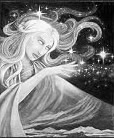FigwitBook Club Moderator & Misty Mountain MonsterPosts: 1966 Send Message |
|
FigwitBook Club Moderator & Misty Mountain MonsterPosts: 1966 Send Message |
|
| LadyEowyn_Of_Rohan |
|
| RubySandybanks |
|
|
|
atalante_starScholar of Imladris and Theodens LadyPosts: 1365 Send Message |
|
FigwitBook Club Moderator & Misty Mountain MonsterPosts: 1966 Send Message |
|
atalante_starScholar of Imladris and Theodens LadyPosts: 1365 Send Message |
|
|
|
atalante_starScholar of Imladris and Theodens LadyPosts: 1365 Send Message |
|
FigwitBook Club Moderator & Misty Mountain MonsterPosts: 1966 Send Message |
|
atalante_starScholar of Imladris and Theodens LadyPosts: 1365 Send Message |
|
FigwitBook Club Moderator & Misty Mountain MonsterPosts: 1966 Send Message |
|
 Author
Author








 5.III. The Muster of Rohan
5.III. The Muster of Rohan
 Yes, I do like Dunharrow. Dunharrow reminds me very much of many places that I've seen here in British Columbia, Canada. Heavy forests, waterfalls, mountains, hidden valleys. Majestic, beautiful, and seemingly endless. I can emphasize completely with Merry and his feeling of being very small in such a landscape. This closeness with nature can be a unique spiritual experience. And a bit overwhelming for some people.
Yes, I do like Dunharrow. Dunharrow reminds me very much of many places that I've seen here in British Columbia, Canada. Heavy forests, waterfalls, mountains, hidden valleys. Majestic, beautiful, and seemingly endless. I can emphasize completely with Merry and his feeling of being very small in such a landscape. This closeness with nature can be a unique spiritual experience. And a bit overwhelming for some people.
 .
. 